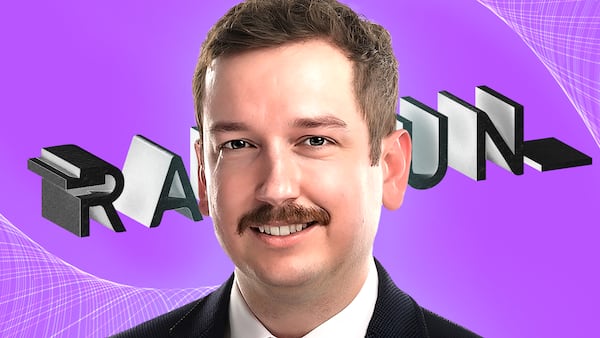- Tornado Cash developer Roman Storm has been accused of money laundering and sanctions evasion.
- A federal judge has denied his attempt to dismiss the charges.
The prosecution of Tornado Cash co-founder Roman Storm will head to trial, a US federal judge ruled Thursday.
Judge Katherine Failla of the Southern District of New York denied Storm’s request that she dismiss the case, expressing deep skepticism of the notion that writing and then deploying the Tornado Cash protocol was conduct protected by the First Amendment.
“It is true that computer coding can be expressive conduct protected by the First Amendment,” she said. “But when a programmer is using a code to direct a computer to perform various functions, that code is not protected speech.”
Tornado Cash is a crypto “mixer,” a protocol used to obfuscate the flow of crypto on Ethereum. Popular with privacy-conscious users, it also became a magnet for cybercriminals looking to launder stolen tokens, including hackers with ties to North Korea and its nuclear weapons program, according to prosecutors.
Prosecutors have charged Storm with conspiracy to commit money laundering, operate an unlicensed money transmitting business, and evade US sanctions.
Storm has argued Tornado Cash is self-executing software he cannot change, upgrade, or control — in other words, that he had no hand in what may have happened on the platform after it was published on the Ethereum blockchain in 2019.
As such, he’s really being prosecuted for writing the code, he argued.
Industry attorneys said they were disappointed by the judge’s decision.
“We knew going in that the standard for this decision is extremely high and this type of motion is almost never granted, but we had hoped the judge would not accept the government’s novel theory of developer liability,” Amanda Tuminelli, chief legal officer at the DeFi Education Fund, told DL News in a statement.
“We believe the responsibility for third party criminal use of open-source software should lie with those third parties who intentionally use tools for illicit purposes, not the creator of the neutral tool.”
Jake Chervinsky, chief legal officer at crypto venture fund Variant, called it “an assault on the freedom of software developers everywhere.”
The decision
One by one, Judge Failla shot down Storm’s other arguments for dismissing the case.
Storm couldn’t have run a money transmitting business, according to his attorneys. That’s because Tornado Cash, unlike most crypto protocols, was “immutable,” akin to a self-driving car whose owner had thrown away the key. There was nothing he could do to prevent criminals from using it to launder stolen tokens.
That was irrelevant, according to the judge.
“Control is not a necessary requirement,” Failla said. In any case, Tornado Cash is “not meaningfully different” from crypto mixers recognized as money transmitting businesses in earlier court cases, she added.
Moreover, “the Tornado Cash enterprise was not an altruistic venture,” she said. Among other things, the co-founders “cashed out TORN holdings for millions of dollars.”
Nor does the government have to prove Storm participated in the “underlying criminal activity” to prove the money laundering charge, according to Failla.
‘Helping hackers’
Blockchains are public ledgers, and the entire transaction history of each crypto wallet can be viewed by anyone, anywhere.
Tornado Cash is one of several crypto protocols built to address that lack of privacy, which has long been considered an impediment to crypto’s adoption.
But it became a favorite tool of the Lazarus Group, hackers affiliated with North Korea and the development of its nuclear missile program.
Tornado Cash was sanctioned by the US Department of Treasury in August 2022. Last year, federal prosecutors indicted Storm and co-founder Roman Semenov.
“Roman Storm and Roman Semenov allegedly operated Tornado Cash and knowingly facilitated this money laundering,” Damian Williams, US Attorney for the Southern District of New York, said in a statement.
“While publicly claiming to offer a technically sophisticated privacy service, Storm and Semenov in fact knew that they were helping hackers and fraudsters conceal the fruits of their crimes.”
Storm, who had been living in Auburn, Washington, was arrested and released on a $2 million bond, according to Inner City Press. As of July, Semenov, a Russian national, remained at large, according to the Boston Globe.
Another Tornado Cash developer, Alexey Pertsev, was arrested in the Netherlands in 2022 and charged with laundering $2.2 billion in stolen and hacked crypto. He was convicted in May and sentenced to more than five years in prison. He is preparing an appeal.
Storm’s trial will begin December 2 in New York.
Aleks Gilbert is DL News’ New York-based DeFi correspondent. You can reach him at aleks@dlnews.com.








